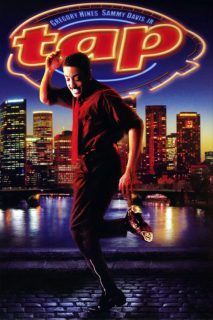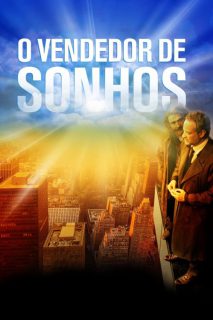
- Year: 1958
- Released: 04 Apr 1958
- Country: France, Italy
- Adwords: 1 win & 1 nomination
- IMDb: https://www.imdb.com/title/tt0050123/
- Rotten Tomatoes: https://www.rottentomatoes.com/m/montparnasse_19
- Metacritics:
- Available in: 720p,
- Language: French
- MPA Rating: Not Rated
- Genre: Biography, Drama, Romance
- Runtime: 108 min
- Writer: Michel-Georges Michel, Jacques Becker, Max Ophüls
- Director: Jacques Becker
- Cast: Gérard Philipe, Lilli Palmer, Anouk Aimée
- Keywords: painter, based on novel or book, depression, artist, biography, montparnasse,
 | 7.4/10 |
 | 83% – Critics |
 | 89% – Audience |
Montparnasse 19 Storyline
Biographic movie about the last year of the famous Italian painter Modigliani. Modigliani, a poor painter in Paris of 1919, falls in love with a daughter from a wealthy family. Her parents are against their relation and stop financial help.—Stephan Eichenberg
Montparnasse 19 Photos



Montparnasse 19 Torrents Download
| 720p | bluray | 996.83 MB | magnet:?xt=urn:btih:6117997DFC4B08C09B9F60CD3AE6F639E89D9D2B |
Montparnasse 19 Subtitles Download
Montparnasse 19 Movie Reviews
Good film, tragic end
Every generation sees or thinks it sees things differently from previous generations; this film shows yet again that bohemian boorishness and temperamental talent is and was nothing new. If you’re seen to be an Artist also being a fascinating penniless perpetual drunk yob can be acceptable, that troubled spirit is sometimes the price of Genius. Amedeo Modigliani was an Italian artist who died at 36 of TB in France, the almost impossibly handsome Gerard Philipe who played him here died the year after the film also at 36 of cancer, and director Max Ophuls died before production started – it makes this French-Italian co-production especially poignant.
The story follows the last period of Modigliani’s life about 1919, after he met and fell madly in love with fellow artist Jeanne Hebuterne, their trials, tribulations and tragedy. It’s all done very well, definitely not as the elegant Ophuls would have done it (witness those clumsy tracking dancing scenes) with good black and white photography and great acting: basically no problems with any of it. However the end of the film was very different to the reality and bearing in mind it was fairly frank anyway I can’t understand why the truth was jettisoned at the climax. Did Modigliani’s daughter object? What actually happened was incredibly sad, brutal and even incomprehensible but still would have made more sense than the end to the film did. It turned a study in romance into a lesson in sordidness.
But never mind, it was still an interesting journey into an Artist’s troubled mind and life and the joy and pain he brought to those around him. I wouldn’t hang one of Modigliani’s hideous paintings up in my house unless I was paid a lot to; I prefer the film – because Beauty is either in the eye of the beholder or the owner.
L’art pour l’art.
A few years ago it was hoped that Anouk Aimée would attend a screening of ‘Lola’ at the French Institute and afterwards answer audience questions. To my great disappointment and that of many others, Mlle Aimée failed to materialise.
I had been hoping to ask her just how much influence Modigliani’s daughter Jeanne had on the making of ‘Montparnasse 19’ which covered the final year in her father’s life.
She herself was two months old when he died at just thirty-five but her birth and her mother’s suicide by defenestration are absent from the film.
The other mystery of course is how much of Henri Jeanson’s original screenplay was changed or jettisoned when Jacques Becker took over the direction from an ailing Max Ophuls. By all accounts Jeanson was thoroughly displeased and took legal action.
What is certain of course is that cinematographer Christian Matras has shot this in the style of Becker and not of Ophuls. There are also scenes with which Ophuls would I’m sure have felt uncomfortable, not least that in which Beatrice Hastings asks Modigliani to hit her again after he has knocked her to the floor!
However ruthless, selfish or anti-social great painters might be they are invariably excused as their behaviour is considered part of the artistic temperament or the prerogative of genius.
Although Modigliani might not have been a jackpot of admirable character traits, the compromises of film dictate that his character be sympathetic. Gérard Philippe is ideal casting in this respect. Granted, the massive ego of the artist is there but also the despair and vulnerability.
It is a pity that the character of his common-law wife Jeanne Hébuterne is so thinly drawn here but Mlle Aimée does her best.
The two performances that stand out are those of Lilli Palmer who is magnificent as Beatrice and Lino Ventura as Morel, a morally vacuous art dealer who observes Modigliani’s decline like a vulture circling a dying body.
As one would expect from Becker there is a wonderful sense of period and place and his direction is taut.
There are weaknesses to be sure but one accepts those in exchange for its strengths and the film has a special quality that is hard to define.
Becker was one of the select few that received approval from the Cahiers du Cinema/New Wave contingent.
Jean Luc Godard’s appraisal is insightful: “Everything rings true in this totally false film. Everything is illuminated in this obscure film.”
Ophuls died shortly before the film was released and within two years both Philippe and Becker had passed away. Ars longa. Vita brevis.
The eternal light from beyond
I am convinced that only those people can really appreciate this movie whose title is either “Modigliani”, “Les Amants De Montparnasse” or “Montparnasse 19”, who are aware that the last year of life of the Italian-French painter Amedeo Modigliani (1884-1920) who died with 36 years, was played by Gérard Philipe, who was lethally sick during the shooting of this movie and died shortly after its release, 1959, with 36 years – on one of the two diseases that Modigliano had himself and exactly in his age. Further, this movie was directed by Jacques Becker – after the sudden death of Max Ophüls. Becker, too, died only 2 years after this movie. Since it is clear that Philipe knew that his days were counted and since one can assume that also Becker knew about his own few remaining months, this movie, suddenly, does not look like kitsch anymore. I just would like to mention that famous scene, where “Modi” says: “Jeanne, on the other side, there will be eternal joy, isn’t that so, Jeanne?”. Philipe’s tears are probably real. In another famous scene, where Modi is going to be humiliated by an American billionaire, he quotes Van Gogh: “I have to drink a lot to get that splendid yellow back that I found last summer”. These words could be Philipe’s own words. Fassbinder who dedicated his movie “Despair” amongst two others to Van Gogh called this phenomenon “A Trip Into The Light”.
It is a famous as well as sad fact that his contemporaries put as many obstacles as they could in the way of Jacques Becker, so that he was able to realize only a good dozen of movies. Today, half a century after Becker’s death, “Modigliani” is still not available. The only American VHS edition is long out of print, and one pays horrendous prices for a copy. And the worst: not even in France, this film is available, neither as VHS nor DVD. So you must go through a lot pain, if you want to watch this masterpiece. But it is worth, I assure you.



